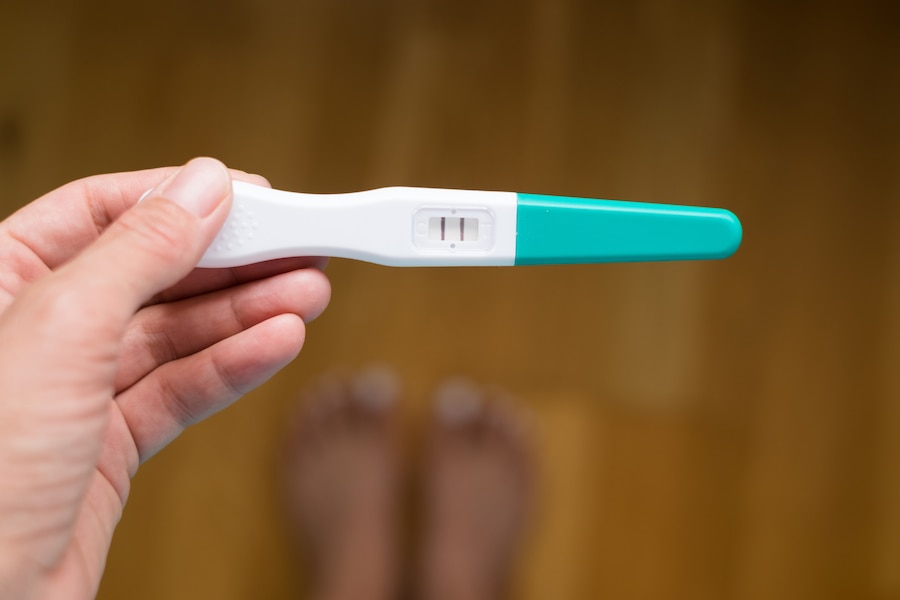How is fertility affected by endometriosis?

For the many women affected by endometriosis, who also want to become mothers, thoughts around fertility can be concerning. To help put some of your worries at ease, let’s just look at how it could affect your fertility, along with some options on how to talk about the issue
Dealing with endometriosis alone can be worrying, especially when coupled with concerns about how it could also affect your chances of having children, if you want to have them. If you are going through a particularly troubling time with endometriosis or fertility (or both), you might feel isolated or anxious. But there are ways around feeling like this, like sharing your feelings or having a chat with someone you trust such as your partner, a close friend, or your doctor so you can feel supported and reassured during what may be a difficult time.
Endometriosis may be a word you’ve heard before either at school, in a book or on TV, but maybe you’re not quite sure what it means or how it could affect your fertility. Endometriosis is essentially a condition that causes tissue which is similar to your uterus lining, to grow in places it shouldn’t. This excess growth of tissue is also thought to possibly affect your fertility. When this tissue bleeds, much like when your uterus lining sheds during your period, the blood is not able to easily leave your body, and this can cause pain and swelling.
Keep in mind that even though routine period cramps are normal, extremely intensive pain, either during or around your cycle is not something you should have to constantly endure. So if you do feel like you’re particularly suffering from period pains, it’s a good idea to check in with your doctor for some medical advice.
Endometriosis and infertility
Endometriosis is a condition which is most common during your reproductive years (so between your first period and menopause) and it is estimated that around 176 million women worldwide suffer from it [1]. Given that endometriosis is most prevalent when women may want to decide to become pregnant, it may be useful to find out how it can affect fertility.
Getting pregnant with endometriosis
While a lot still remains unknown regarding fertility and endometriosis, research has shown that women who suffer from endometriosis may find it harder to get pregnant. It is not known exactly why it may be harder, but there are some possible explanations:
- Some extra tissue growth in the fallopian tubes as a result of endometriosis could block an egg from moving down the fallopian tubes and prevent it from being fertilised with sperm [2].
- Inflammation triggered by endometriosis could decrease the quality of the egg or disturb embryo implantation [3].
Even though it may be harder for you to get pregnant if you have endometriosis, it’s important to understand that endometriosis does not necessarily equal infertility. So if you do have endometriosis, try and remember that it might be still possible for you to get pregnant! You can always book a consultation in with your doctor so that they can chat to you about the different fertility options or treatments that may be able to help you.
The importance of breaking the silence on endometriosis and infertility
Lots of us experience or will experience both endometriosis and infertility. It can feel lonely to go through and talking about it can be hard but sometimes keeping your feelings in the shadows won’t necessarily make you feel better. Instead why not try and find out what your options are by talking to a medical professional, while also relying on those closest to you for care and comfort.
At the end of the day, by opening up a dialogue surrounding these tricky subjects we can dispel the myths, break taboos and ultimately bring people together who may have previously been suffering in silence.
The right help and guidance during these potentially distressing times is out there and that the best way to start is by finding and accessing this support. First and foremost, remember to be kind to yourself and listen to your heart. Even writing it down before speaking about it aloud can help you connect with your feelings. If you feel ready to share your experience, we’d love to hear about it. And for more information on fertility and pregnancy in general, head over to our helpful pages about fertility treatment, how pregnancy could affect your periods and our section on sexuality and pregnancy.
Medical disclaimer
The medical information in this article is provided as an information resource only, and is not to be used or relied on for any diagnostic or treatment purposes. Please consult your doctor for guidance about a specific medical condition.
[References]
[1] http://endometriosis.org/endometriosis/
[2] http://endometriosis.org/endometriosis/infertility/
[3] Sanchez, Ana Maria et al. “Is the oocyte quality affected by endometriosis? A review of the literature.” Journal of ovarian research vol. 10,1 43. 12 Jul. 2017.


